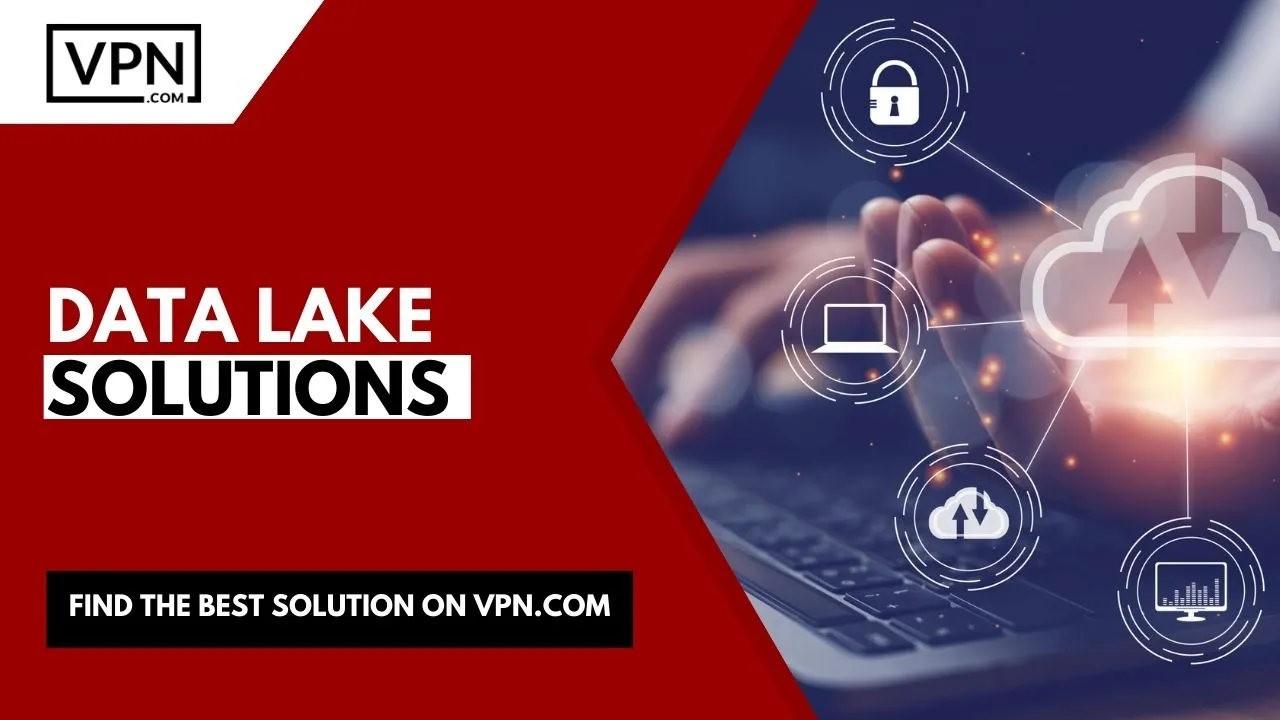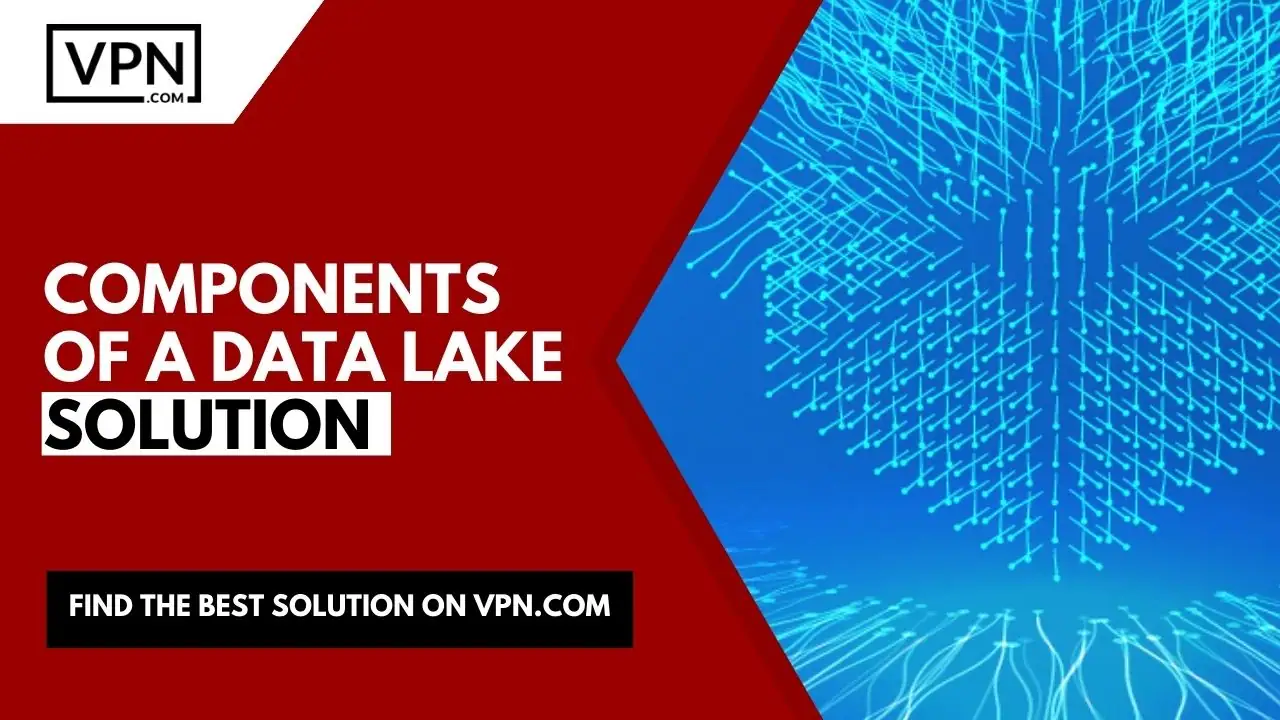Data Lake Solutions

Data is king in the realm of business analytics. And, because of the rise of data lake solutions, that power is now more accessible and adaptable than ever. So, what exactly are data lakes? Consider them large digital vaults where raw data is stored before being processed for analysis.
Data lakes, as opposed to typical data warehouses, provide exceptional flexibility and accessibility, allowing businesses to store massive volumes of data and then access and analyze it on-the-fly. This is especially critical in an age when data is being produced at an unparalleled rate.
Businesses that use data lake solutions can acquire insights and rapidly make informed decisions without being constrained by traditional data storage and processing methods. The advantages of data lakes are apparent, making them an essential tool for firms looking to stay ahead of the competition.

Our #1 Rated Monitoring Service
- 24x7x365 multi-cloud security
- Security Assessment & Remeditation
- DevSecOps
- Cloud Disaster Recovery
Understanding Data Lakes
For an organization to maintain a competitive edge in the big data era, access to accurate and timely information is crucial. Data lake technologies can help in this situation. Data lakes are intended to handle both structured and unstructured data in their native state, unlike conventional data warehouses that store structured data according to a predefined format.
This method enables more flexible data access and more rapid and scalable analysis. Data lakes have consequently gained significance for business analytics and other big data applications. Data lakes give organizations a single picture of their data, enabling more precise and informed decision-making that gives them a competitive advantage.
Components Of A Data Lake Solution

Data Storage
A reliable data storage platform is essential in today’s data-driven business environment. Businesses now have scalable and adaptable data lake solutions because of the emerging viability of object storage and distributed file systems.
Platforms like Amazon S3 and Microsoft Azure Data Lake Storage are becoming increasingly well-liked because they provide flexible data access and let businesses get more out of their data.
Businesses can easily store, manage, and retrieve their data with the help of these platforms, which are built to handle massive amounts of data. With their increased agility, organizations can better evaluate their data and obtain relevant business insights that aid in decision-making.
Data Processing
Data has become a crucial component of any enterprise in today’s digital transformation era. With the advent of big data, firms must now handle, store, and effectively analyze massive amounts of data. This is where data lake solutions may help.
Data lake solutions are quickly becoming the preferred choice for enterprises worldwide because they provide business analytics with data access flexibility. Two of the most prominent large data processing frameworks are Apache Spark and Apache Hadoop, while two commonly used data processing platforms are Cloudera Data Platform and Hortonworks Data Platform.
These technologies let enterprises collect, store, and analyze data on a large scale, boosting decision-making and operational efficiency. In today’s digitized business market, a well-implemented data lake solution provides an unrivaled competitive advantage.
Data Governance
Businesses of all sizes are looking for dependable solutions to help them handle the enormous volumes of information they acquire as the importance of data collecting and analysis continues to rise.
The data lake solution is one well-liked choice for gathering and analyzing data. The importance of data governance elements for enterprises is also rising, especially in fields like metadata management and data cataloging.
To handle their data more effectively and streamlined, businesses need platforms like Informatica Enterprise Data Catalog and Apache Atlas, which offer these solutions.
Businesses can benefit from improved data access flexibility while ensuring that their data is appropriately managed and preserved with the help of these data governance systems. In the end, this aids businesses in getting the most out of their data by enabling better business analytics and decision-making.

Our #1 Rated Monitoring Service
- 24x7x365 multi-cloud security
- Security Assessment & Remeditation
- DevSecOps
- Cloud Disaster Recovery
Data Storage
Data Processing
Data Governance
Advantages Of Data Lake Solutions

Data lake solutions quickly become the go-to option for businesses looking to enhance their data management capabilities. Offering unparalleled scalability, flexibility, and cost-effectiveness, these solutions can handle vast amounts of data, processing and storing it in real-time.
With data governance features and integration with other applications, data lake solutions are engineered to ensure seamless access to business analytics. What separates these solutions from traditional alternatives is their versatile approach to data processing, providing businesses with the ability to draw insights from both structured and unstructured data.
In addition, security measures built into these solutions provide unmatched protection against data theft and unauthorized access. With the extensive benefits of data lake solutions, businesses can enjoy enhanced data access flexibility and streamline their overall data management process.
Scalability
It’s understandable why data lake solutions remain crucial to contemporary corporate analytics. Businesses may easily access enormous amounts of unstructured data and make knowledgeable decisions by storing it in a single, central location without investing heavily in system upgrades.
What’s best? Data lake solutions provide both horizontal and vertical scalability, giving organizations the freedom to expand their data storage as they expand horizontally while also enabling them to use vertical scalability to enhance the performance of specific queries. This degree of data access flexibility is essential, especially for businesses that encounter erratic data variations.
Adopting data lake solutions and putting both horizontal and vertical scalability into practice may significantly enhance data governance, democratize access to data, and shorten the time it takes to transform insights from raw data into actionable insights.
Flexibility
These days, data is everything. Businesses increasingly focus on leveraging data to inform strategic decisions, so they must have access to the appropriate products and services. Data lake solutions can help with that. These platforms give companies a single location to store all their data, regardless of source or format.
To provide data access flexibility that is impossible with other solutions, data lake solutions offer the capacity to handle numerous data kinds and interface with various data processing frameworks. Companies can gain insights and use advanced business analytics to make better decisions with the proper data lake solution.
Cost-effectiveness
It’s critical to have a robust data storage and analysis system to meet your corporation’s needs in today’s fast-paced commercial environment. Data lake solutions can be helpful in this situation. With data lake solutions, businesses can easily access their data, making gathering valuable insights and achieving better business analytics much easier.
Moreover, this kind of solution has a pay-as-you-go pricing model that can help businesses save on costs, especially regarding hardware and infrastructure. Using data lake solutions is a smart way for businesses to streamline their data management process, optimize costs, and gain a competitive edge.
Integration
Businesses recognize the value of having access to data in today’s data-driven market to make wise decisions. Data center technologies are helpful in this circumstance. They offer a central location for managing and storing copious volumes of data from different sources.
The capability of integration with multiple platforms and data sources should be noted. Additionally, seamless connection with other big data frameworks and tools improves data access flexibility, essential for business analytics.
Now, businesses can get a complete picture of their data, conduct sophisticated analyses, and draw conclusions. As a result, firms can make better choices and maintain their competitiveness.
Security
Modern business analytics relies heavily on data. Therefore firms need scalable and secure solutions to store and process their enormous datasets. Data lake solutions fill this need by offering a flexible and affordable replacement for conventional data warehousing techniques.
However, data security and privacy are crucial, and organizations require strong security measures like access controls and encryption to protect their data. Fortunately, data lake solutions contain cutting-edge security capabilities that enhance compliance with data privacy laws, giving organizations and their client’s piece of mind.
Data lake solutions give businesses unmatched data access flexibility and the capacity to manage and analyze data rapidly and securely, enabling them to make better decisions based on accurate and trustworthy data.

Our #1 Rated Monitoring Service
- 24x7x365 multi-cloud security
- Security Assessment & Remeditation
- DevSecOps
- Cloud Disaster Recovery
Scalability
Cost-effectiveness
Flexibility
Integration
Challenges Of Data Lake Solutions

Businesses produce enormous amounts of data every day in the current day. It is critical to guarantee that the data quality is unmatched for all types of information, including customer data and transactional records. Data security is yet another crucial factor that must not be ignored.
Businesses are implementing data lake solutions, which allow for data access, storage, and administration in a centralized repository to address these issues. These products make it simple for businesses to use flexible data access to discover insights that improve performance.
Additionally, many businesses are increasingly embracing business analytics to comprehend their data thoroughly and create action plans that enable them to compete in today’s dynamic economy.
Use Cases For Data Lake Solutions
The capacity to harness the power of data is critical to success in today’s fast-paced environment. As businesses receive massive volumes of data from many sources, the difficulty becomes determining how to correctly store, organize, and analyze this data.
That’s where data lake solutions give businesses the flexibility and scalability they need to access and use their data for valuable insights. Data lake solutions, whether for business intelligence and analytics or IoT and sensor data, enable easy data access and analysis, promoting innovation and improving decision-making.
Data science and machine learning are crucial in the media and entertainment industries for analyzing consumer behavior and providing personalized experiences. The possibilities for using data are limitless when advanced analytics and data access flexibility are used.
Data Science And Machine Learning
Businesses need reliable and scalable solutions to store and manage massive amounts of data in today’s data-driven environment. Data lake solutions can help with that. Unstructured and sensor data are only two examples of the many data kinds that these technologies offer significant flexibility to handle.
Businesses may use the potential of data lake solutions to develop insights that provide them competitive advantage by having flexible data access.
Data lake solutions help companies get the most out of their data to make wise decisions, whether they’re using it for business analytics or machine learning models. Overall, a strong partnership with data lake solutions is essential for companies trying to stay ahead of the curve and profit from advanced analytics.
Business Intelligence And Analytics
Data is king in the realm of business analytics. Finding insights that boost your bottom line might be a lot easier if you have access to a huge database of data from numerous sources. In such a scenario, data lake technology can be beneficial. These systems provide companies with unrivaled flexibility in storing, accessing, and analyzing data.
Additionally, with the ability to analyze data in real time, businesses can obtain insightful information instantly, enabling them to react quickly and make wise decisions. Businesses can feel confident knowing they have all the information they need to make the best decisions for their organization since data access flexibility is at the heart of data lake solutions.
IoT And sensor data
In today’s society, which is driven by digital technology, an astounding amount of data is produced. To make wise decisions, organizations rely on data-driven insights. Solutions for data lakes have shown to be the most efficient way to process enormous amounts of data.
Businesses can obtain crucial insights required to foster growth and success by having the ability to store and interpret data from numerous IoT devices and sensors. Data lakes enable flexible data access, making it simple for companies to use business analytics to find unnoticed patterns and trends.
They also give businesses the ability to process data in real time for alerts and insights that are received immediately. Organizations can manage, process, and analyze large amounts of data with the help of data lake solutions. They are quicker and more effective at making wise selections.
Media And Entertainment
Businesses in today’s digital world are overloaded with a wealth of media data, including photographs and videos. This data is priceless and has the potential to reveal revolutionary insights, but only when correctly utilized.
Businesses may now easily store and handle huge amounts of media content and perform complex analytics on this content, like sentiment and content analysis, thanks to data lake technologies.
For businesses trying to make data-driven decisions, such business analytics are essential. Data lake solutions also provide rapid and simple access to the data required to support the study through flexible data access. In conclusion, organizations may successfully navigate the large sea of media data using data lake technologies.

Our #1 Rated Monitoring Service
- 24x7x365 multi-cloud security
- Security Assessment & Remeditation
- DevSecOps
- Cloud Disaster Recovery
Best Practices For Implementing A Data Lake Solution

Any modern organization must have adequate data governance. Data quality, data security, and the choice of the best platforms for data storage and processing are just a few of the many disciplines it involves. Companies must ensure they have a robust data governance framework in place, given the growing relevance of data in today’s business environment.
The correct personnel must be hired for a data governance plan to be successful. The right team can bring a distinctive viewpoint to the table and assist in identifying and resolving problems with data security and quality.
Businesses can also utilize data lake solutions, providing outstanding business analytics capabilities and flexibility to access. Companies may make sure that their data governance policy is solid and practical by using these best practices in the face of quickly changing technological trends.
Conclusion
Large data quantities can now be stored and analyzed on strong, adaptable, and economical systems called “data lakes.” The advantages are obvious: Companies can now rapidly and effectively access and analyze all of their data, regardless of format.
As a result, judgments are made with more insight. Data lakes do, however, also present certain difficulties. To guarantee that data is available and correct, challenges with data security, governance, and quality must be addressed.
In the age of big data analytics, data lake solutions will still be essential in the future. Businesses will continue to gain from these platforms’ expanded data access flexibility and enhanced business analytics as their capabilities develop.




